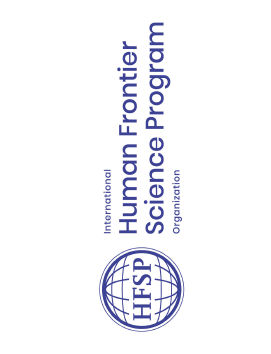The proposed research
HFSP funds only basic research. The International Human Frontier Science Program Organization (HFSPO)’s mission is to “fund basic research focused on the elucidation of the sophisticated and complex mechanisms of living organisms for the benefit of all humankind, through international cooperation”.
Applicants for a Cross-Disciplinary Fellowship have the unique opportunity to apply their special training, skills and methodologies to address an important new problem or a barrier to progress in a life science field. The opportunities are wide, and just by way of examples, engineers can use biomechanics approaches and develop robotic tools to understand movement or to develop biosensors and innovative biomaterials for use in the biomedical sciences. Mathematicians can apply their knowledge to predict behavioural patterns of species or to disease development. Chemists can use synthetic biomolecules as novel agents, while physicists can apply their training to understand biofilm development or phase transition in cells or to study coloration in animals or bioluminescent phenomena.
Prospective CDF applicants are encouraged to visit the HFSP website at https://www.hfsp.org/awardees/awards to see which kind of cross-disciplinary projects have been funded in the past. They can also contact the Fellowship Office directly to get feedback on the alignment of their proposed project with the objectives and scope of HFSP-funded research.
The quality of the proposed research is judged against specific criteria and applicants should study these assessment criteria that can be found here, as they develop their applications.
Successful Cross-Disciplinary Fellowship proposals
- incorporate novel investigative approaches at the frontiers of the life sciences with the potential to disrupt existing paradigms and current ways of thinking. The results of the research are expected to have an impact beyond the immediate field.
- demonstrate the change of field of the applicant and demonstrate the ability to formulate a research project with the frontier-extending, risky nature and describe how the applicant’s unique training and special skill set will allow them to address biological problems in a novel and distinct way.
The applicant may consult with the host supervisor in the development and writing of the proposal, but the project should be primarily the idea of the applicant.
- provide a prospect for novel directions in the host laboratory, made possible through the non-biological expertise of the applicant.
- clearly show how the proposed project is different from the applicant’s research to date (PhD or previous postdoctoral positions) and how it will help the applicant to learn new research approaches and methodologies.
HFSP does not fund
1. Projects of a purely applied nature. For example:
- projects of a primarily clinical and pharmaceutical nature; those projects are only considered if they allow new insights into fundamental biological mechanisms of a disease.
- projects aimed at developing methods of diagnosis or treatment, including the search for potential drug targets or advanced trials of drugs under development.
- applied research in engineering, biotechnology, or nanotechnology, that does not address a fundamental biological problem.
- projects directly concerned with agricultural problems such as crop yield or breeding and environmental problems such as pollution, or forestry.
2. Research aimed at developing novel methods or the study of analogs or models of biological activity unless these methods allow new biological questions to be answered in the context of the aim of the HFSP to fund fundamental research.
3. Observational projects or systematic screening approaches.
4. Large-scale data collection studies or large-scale studies on populations or ecosystems. However, studies of the mechanisms of species-species interactions or their co-evolution are eligible.
5. Research in for-profit environments (but collaborations are allowed). Proposals representing standard or incremental approaches, obvious next steps in the field or for the host laboratory (routine projects) or proposals that do not represent a significant change in research direction from previous work of the applicant (i.e. PhD thesis or previous postdoctoral work) are less likely to receive funding.
